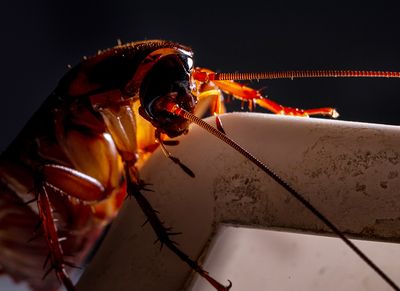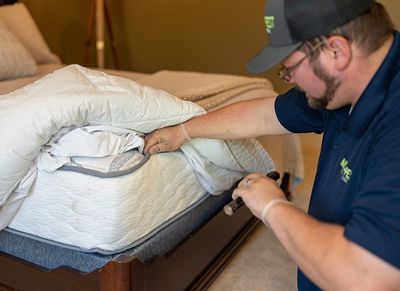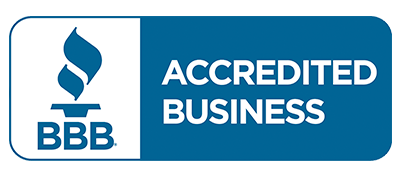What do Pharaoh ants look like?
The workers of Pharaoh ants are about 1/16 of an inch long. They have light brown or yellow bodies with transparent skin. These ants have six legs, two antennae, and three body parts: head, thorax, and abdomen. Between the thorax and abdomen, there is a thin waist, called a petiole, which has two nodes on it.
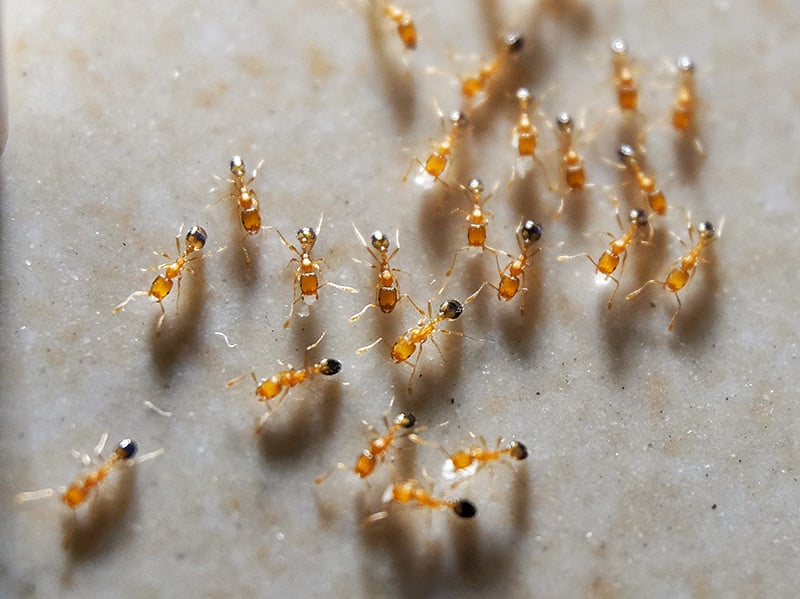
When are Pharaoh ants most active?
Are Pharaoh ants dangerous?
Pharaoh ants do not directly threaten humans, as they do not have functional stingers. However, they present an indirect threat because they contaminate food and spread pathogens. Pharaoh ants are infamous for infesting hospitals and medical clinics and spreading infections between patients.
What problems do Pharaoh ants cause?
Along with making people sick, these ants get into trouble when they nest inside walls, outlets, power boxes, and electrical devices. Their activities can short out electrical components, damage equipment, and cause electrical arcing, which is a potential fire hazard.
What do Pharaoh ants eat?
Nectar, honeydew, and fruit are Pharaoh ants' favorite food sources outdoors. When these ants enter structures, they eat grease and oil splattered on the sides of ovens, sugar granules on shelves, peanut butter, and more. They also eat the insects that enter your home in search of available food resources.
What attracts Pharaoh ants?
These ants are drawn to food resources, warmth, moisture, and pest activity. When they find what they're looking for, they have no trouble finding a place to nest. It is also important to note that, while not attracted to light, they feed on insects that are drawn to structures with exterior lighting.
Where do Pharaoh ants nest?
You'll find these ants nesting outdoors and indoors. On the outside of structures, they nest in soil, underneath debris, between rocks, under trash receptacles, and in foundation cracks.
When they get inside, there is no end to all of the places they may nest. They'll create nests under floorboards, within walls, inside outlets, and in other small spaces. They prefer to nest near a source of warmth, so you'll likely find them near heating pipes. But they can be nearly anywhere. Here are a few places these ants have been found nesting:
- Inside appliances, such as coffee makers and microwave ovens.
- In kitchen and bathroom cabinetry.
- Under floors.
- Inside electrical equipment and devices.
- Between clothing items or stacked sheets and bedding.
- Between sheets of paper or inside books.
- In garbage bags, trash bins, and junk piles.
- Under medical bandages, where it is warm and moist.
These ants are incredibly versatile and adaptable, particularly when it comes to nesting, as they are efficient at colonizing new territory. One reason for this is that there are many queens in a Pharaoh ant colony. Not only do they have multiple queens, but the queens make up as much as 5% of a colony's population. Therefore, it is easy for budding to occur. Budding is the process of a queen leaving her colony to form another colony nearby.
What are the signs of a Pharaoh ant infestation?
You're not likely to wonder if you have a Pharaoh ant infestation. While they are tiny ants, you'll see them crawling around in large numbers wherever they infest. You can also look for ant trails. The workers follow scented paths of pheromones to and from food sources.
If you don't see the ants, you may locate them by searching around some of the suggested nesting areas listed here on this page and by checking out any places in your kitchen or pantry where these ants may find grease, oil, or sweets.
How do I get rid of Pharaoh ants?
It is highly recommended to use professional pest control services to completely eliminate a pharaoh ant infestation. Most do-it-yourself ant control products only eliminate the ants that are out searching for food. They do not eliminate the entire ant colony. Since Pharaoh ants have large colonies, the problem is likely to persist. At Anti-Pest, we provide residential pest control and commercial pest management solutions that effectively target Pharaoh ants, ensuring the complete elimination of the entire colony.
How can I prevent Pharaoh ants?
There are many ways to deter Pharaoh ants and prevent an infestation. Consider the conditions that would attract activity and take steps to reduce them. For example, clean exterior trash receptacles and remove flowering weeds or insects that produce honeydew.
Once you've addressed attractants, consider habitation. These ants thrive in a zone with lots of dead leaves and other organic debris. Remove the debris to limit potential nesting.
The last step is to seal any entry points in your exterior. The tools for this job are a caulking gun and a couple of cans of expanding foam. Once you've sealed things up, check all of your weatherproofing and address any gaps.

Testimonials


Our Services
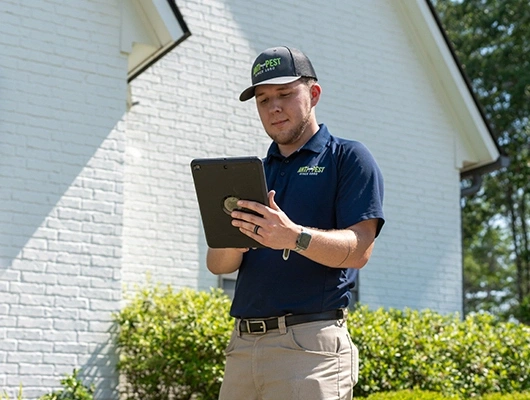
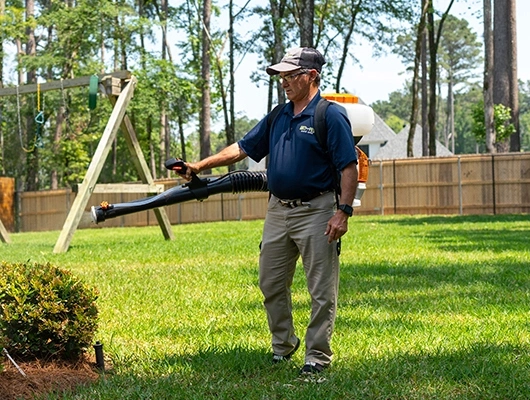
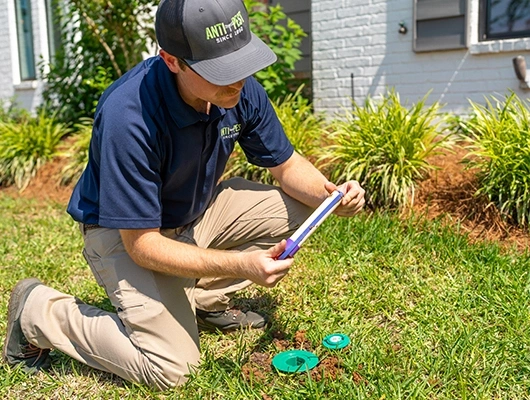
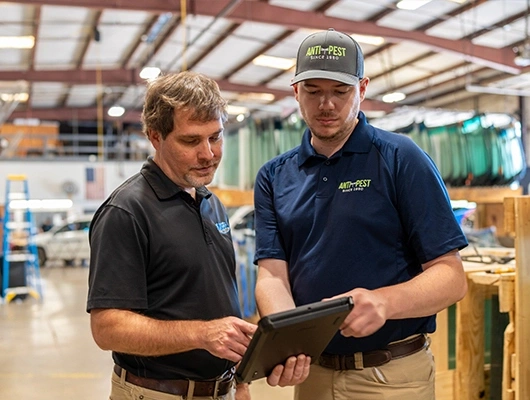
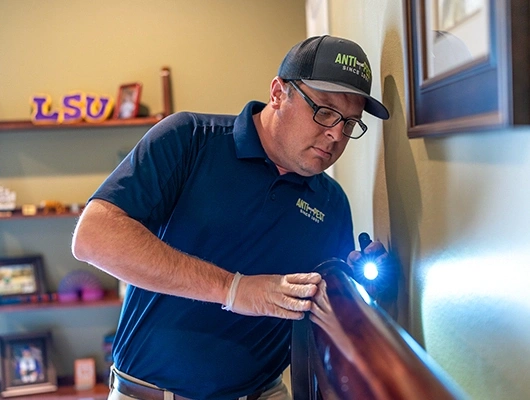
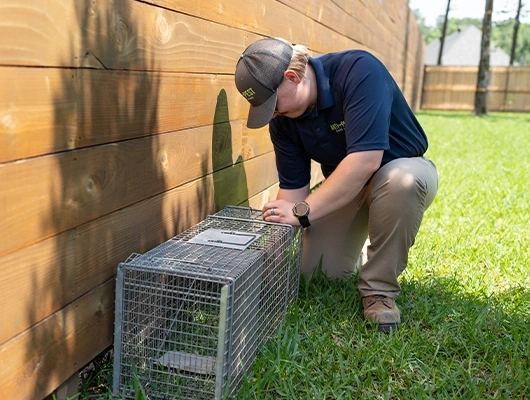
News, Blogs, & Articles
Anti-Pest Blog

